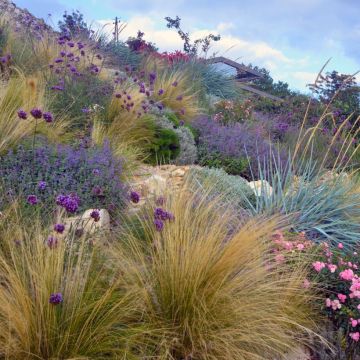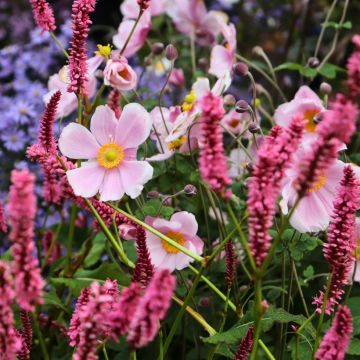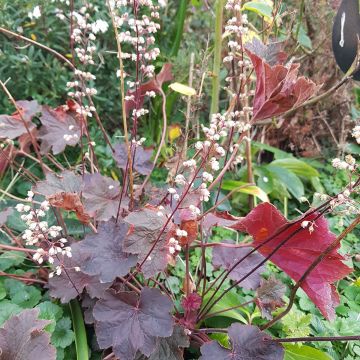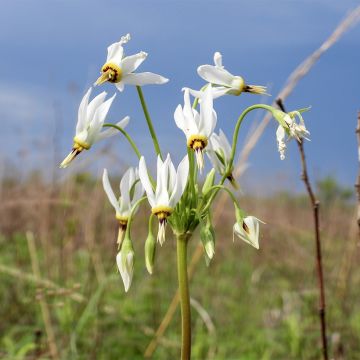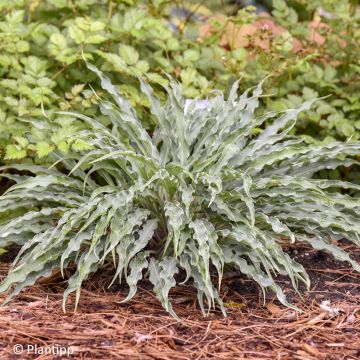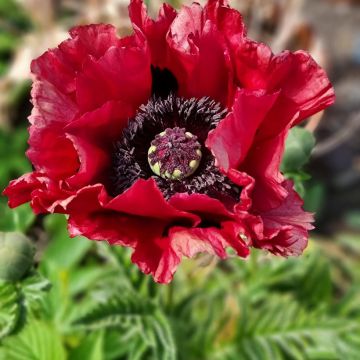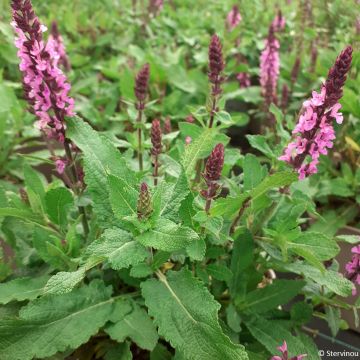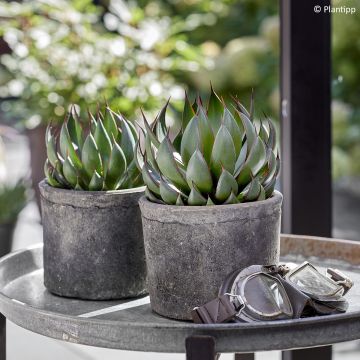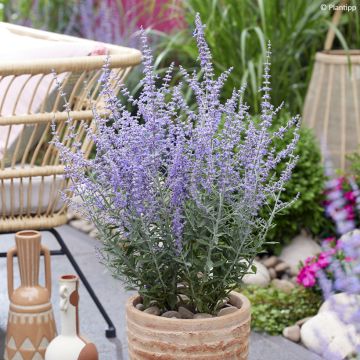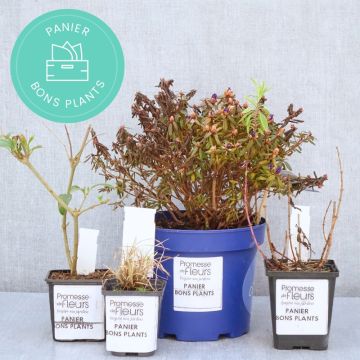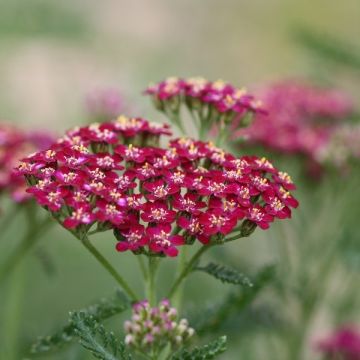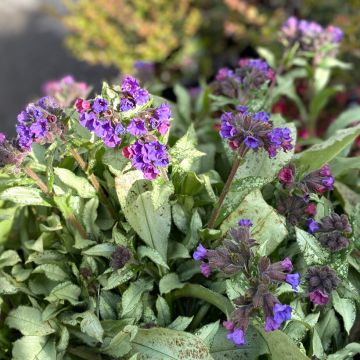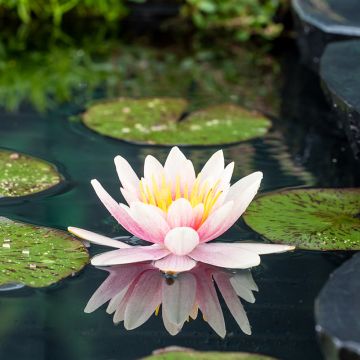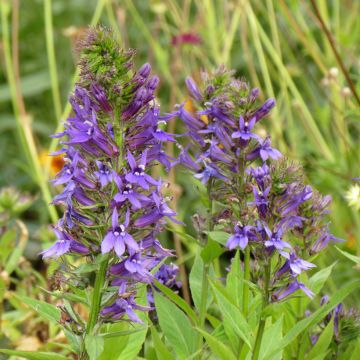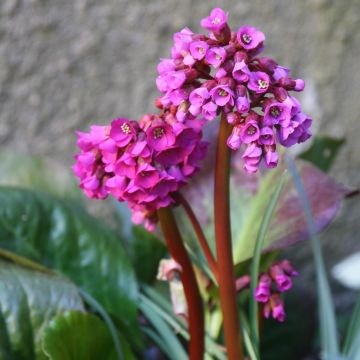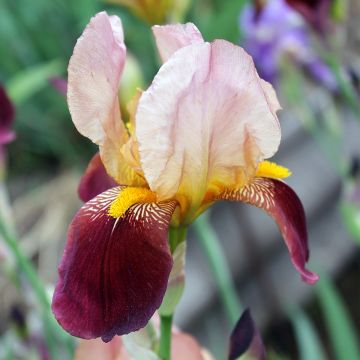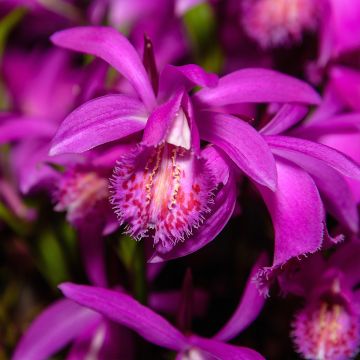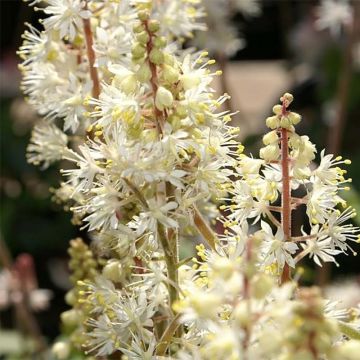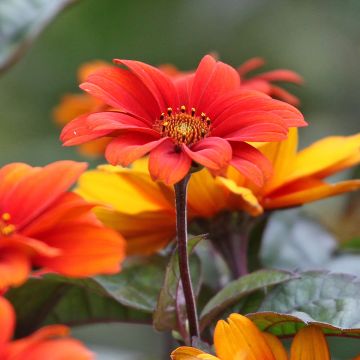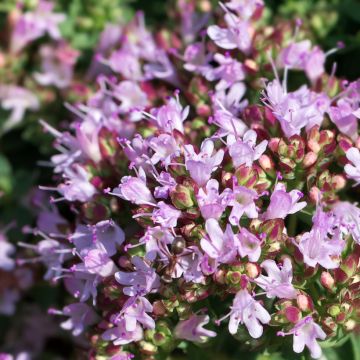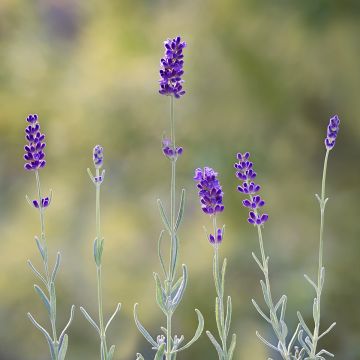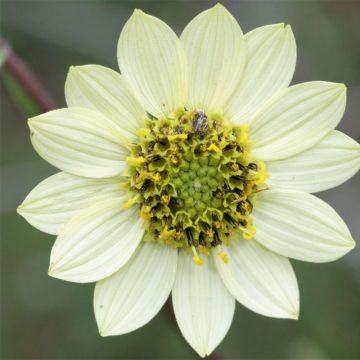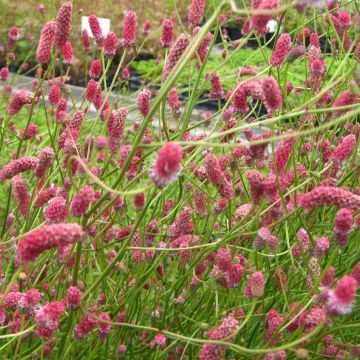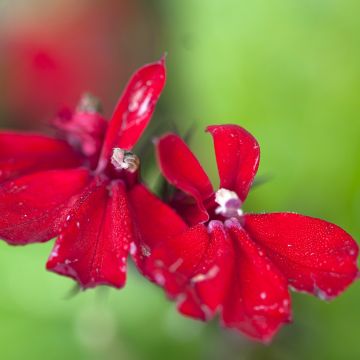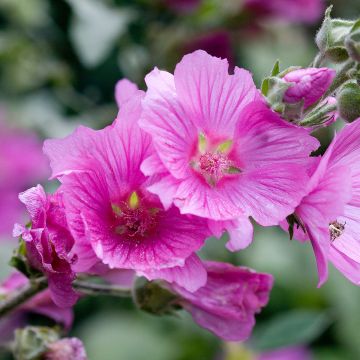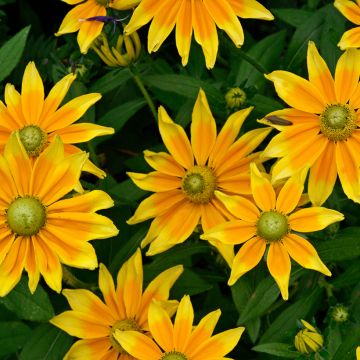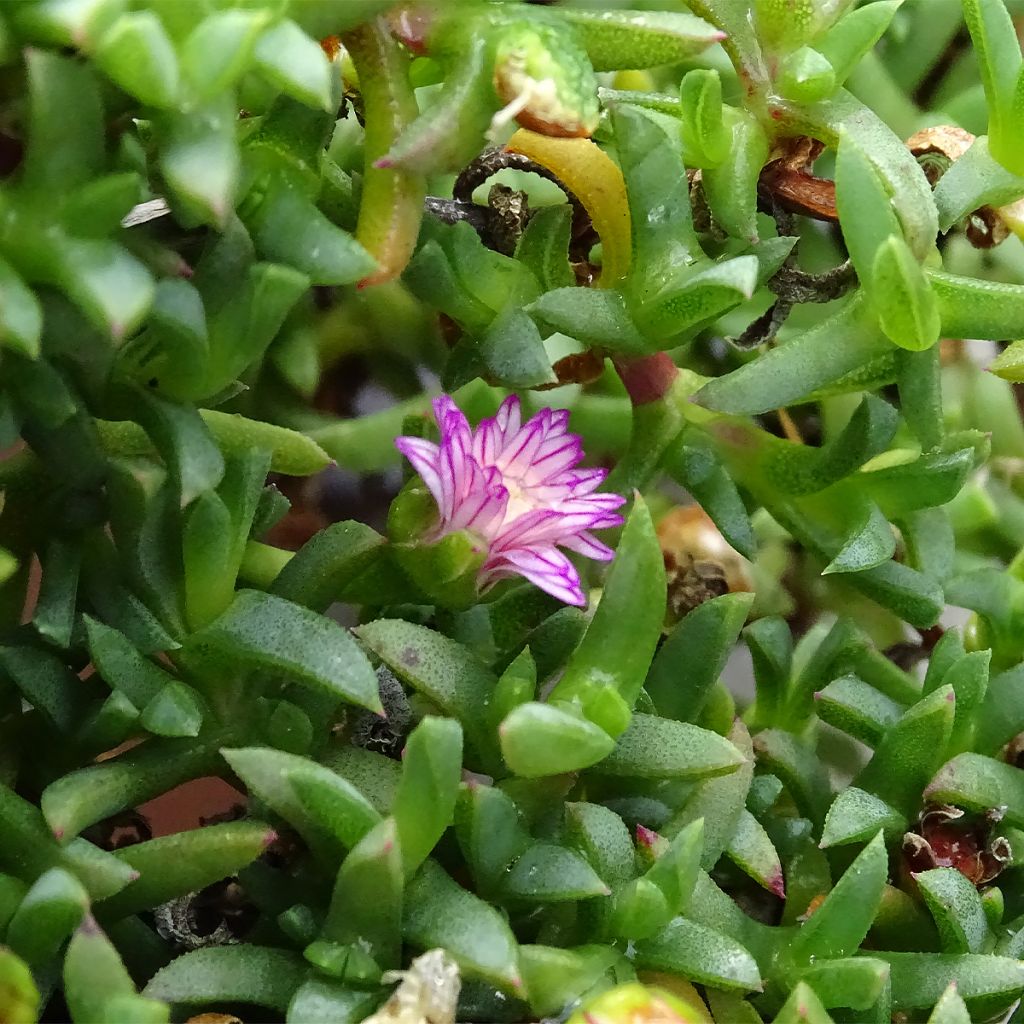

Ruschia prostrata - Antimima prostrée
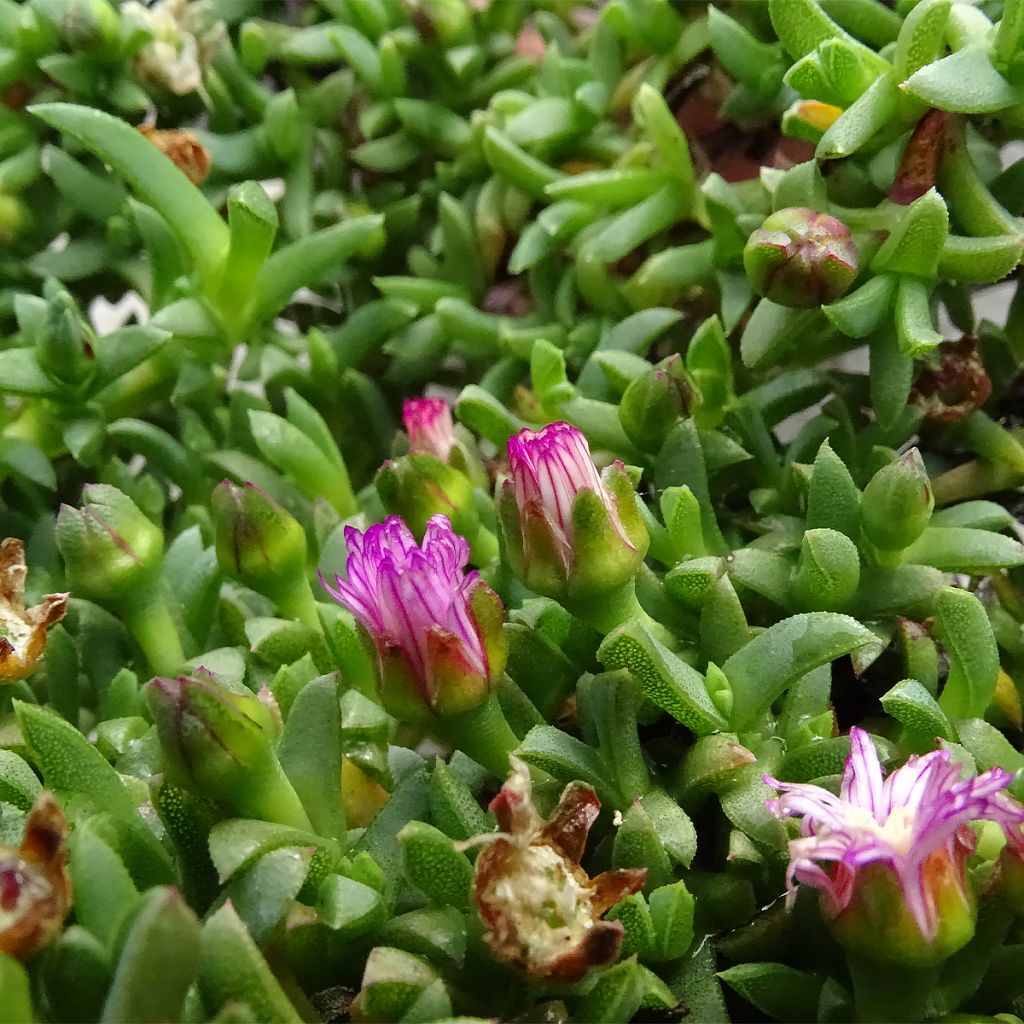

Ruschia prostrata - Antimima prostrée
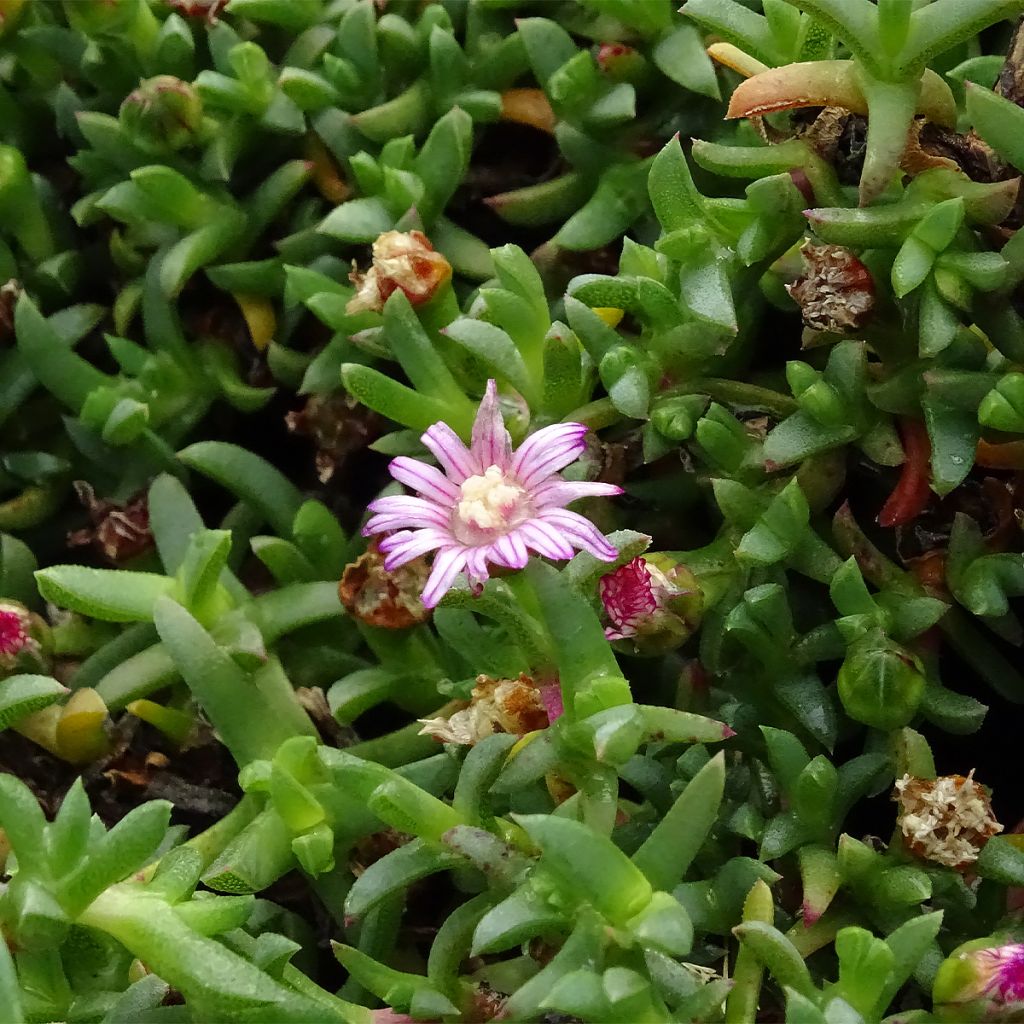

Ruschia prostrata - Antimima prostrée
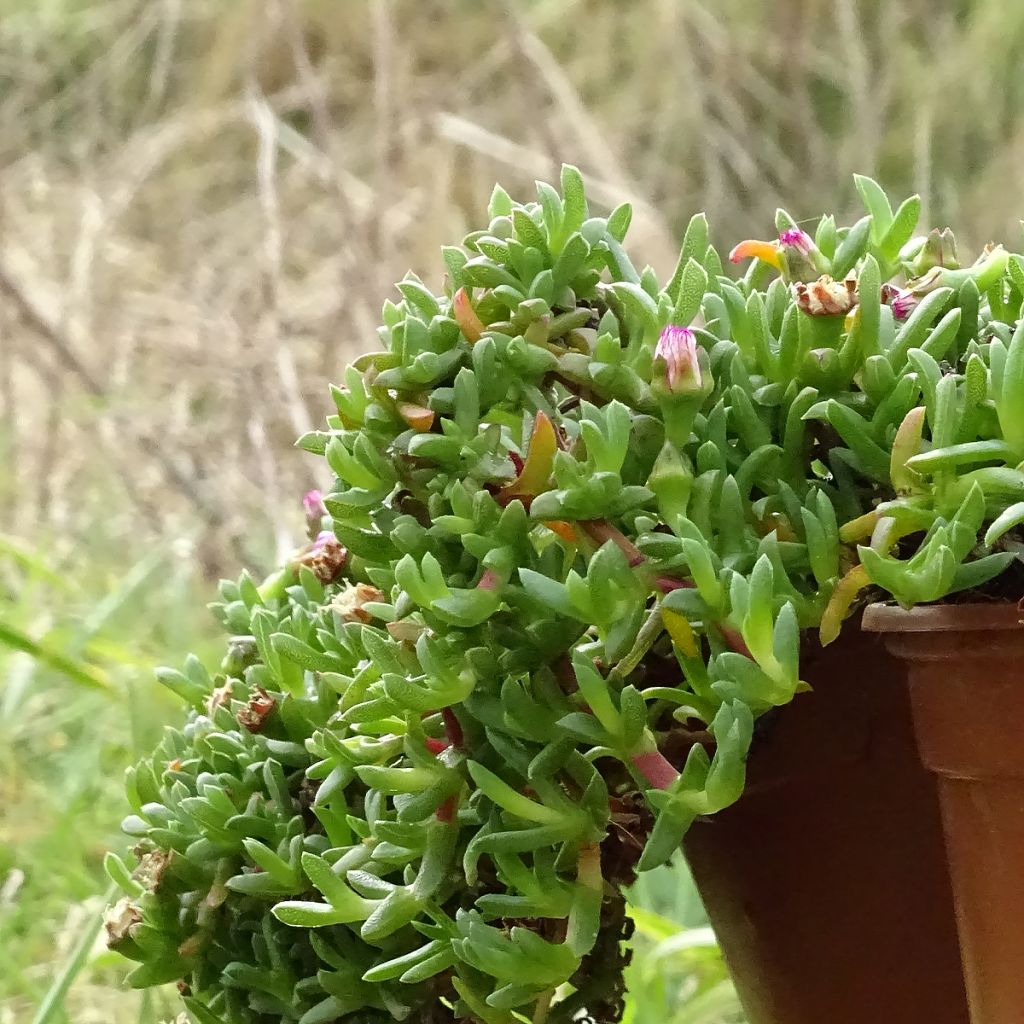

Ruschia prostrata - Antimima prostrée
Ruschia prostrata
Ruschia prostrata
Ruschia prostrata est une espèce spécifique qui n'a pas de nom vernaculaire commun en anglais britannique ou américain. Elle est généralement simplement appelée par son nom scientifique, "Ruschia prostrata".
I have received some young plants that seem very robust and I quickly repotted them. I can't wait to see the flowers. I am satisfied.
Claire, 02/09/2023
Special offer!
Receive a €20 voucher for any order over €90 (excluding delivery costs, credit notes, and plastic-free options)!
1- Add your favorite plants to your cart.
2- Once you have reached €90, confirm your order (you can even choose the delivery date!).
3- As soon as your order is shipped, you will receive an email containing your voucher code, valid for 3 months (90 days).
Your voucher is unique and can only be used once, for any order with a minimum value of €20, excluding delivery costs.
Can be combined with other current offers, non-divisible and non-refundable.
Why not try an alternative variety in stock?
View all →This plant carries a 12 months recovery warranty
More information
We guarantee the quality of our plants for a full growing cycle, and will replace at our expense any plant that fails to recover under normal climatic and planting conditions.
Would this plant suit my garden?
Set up your Plantfit profile →
Description
The Ruschia or Antimima prostrata is a small South African plant with a prostrate habit belonging to the group of Mesembryanthemum, Lampranthus, and other Drosanthemum, characterized by small succulent leaves and a specific adaptation to arid areas. This prostrate Ruschia, very rarely available for sale, will delight collectors. Under favourable conditions, this plant flowers over a very long period, covering itself with small flowers resembling light pink daisies. Ruschia plants love the sun, the seaside, sandy and poor soils, and tolerate very dry summers. They are tender plants that can be grown in pots or as annuals in most climates.
The Ruschia prostrata belongs to the Aizoaceae family. This family comprises a large number of perennial succulent plants originating from South Africa, East Africa, and Madagascar, which are perfectly suited to hot and dry climates and coastal conditions. They settle between stones, rocks, or dry slopes, provided they find some substrate. If your climate is subject to slightly marked frosts, place these plants in pots or containers that can be brought indoors in winter. The hardiness of Antimimia prostrata is difficult to assess given the limited available information. Some sources give up to -5 °C in dry soil.
The Ruschia prostrata forms very low clumps, quickly reaching about 15-20 cm (6-8in) in height and 50-60 cm (20-24in) in width. This plant develops slender, reddish stems covered with elongated, fleshy, triangular-sectioned leaves, bluish-green in colour, which turn red in the sun and drought. The stems become woody with age. Flowering begins in March-April in mild climates and continues for several weeks, before generally fading between July and August, depending on the climates. The vegetation disappears under a mass of daisy-shaped flowers, 2 cm (1in) in diameter. These flowers have very thin and elongated light pink petals. They only open in the sun and attract many pollinating insects. A short-lived perennial, it is preferable to divide this plant every 3-4 years.
If you like Delosperma, ficoïds, and Lampranthus, you will succumb to the charm of Ruschia and Antimima. This Antimima prostrata is a quintessential Mediterranean rock garden plant. It thrives in coastal gardens alongside Sedums, Sempervivums, and other small perennials such as South African daisies (Felicia, Osteospermum). Hanging baskets hosting Ruschia, Drosanthemum, ficoïds, and 'Wheels of Wonder' series Delosperma in various colours will create a stunning, easy-to-maintain, multicoloured carpet for a very long period.
Report an error about the product description
Ruschia prostrata in pictures
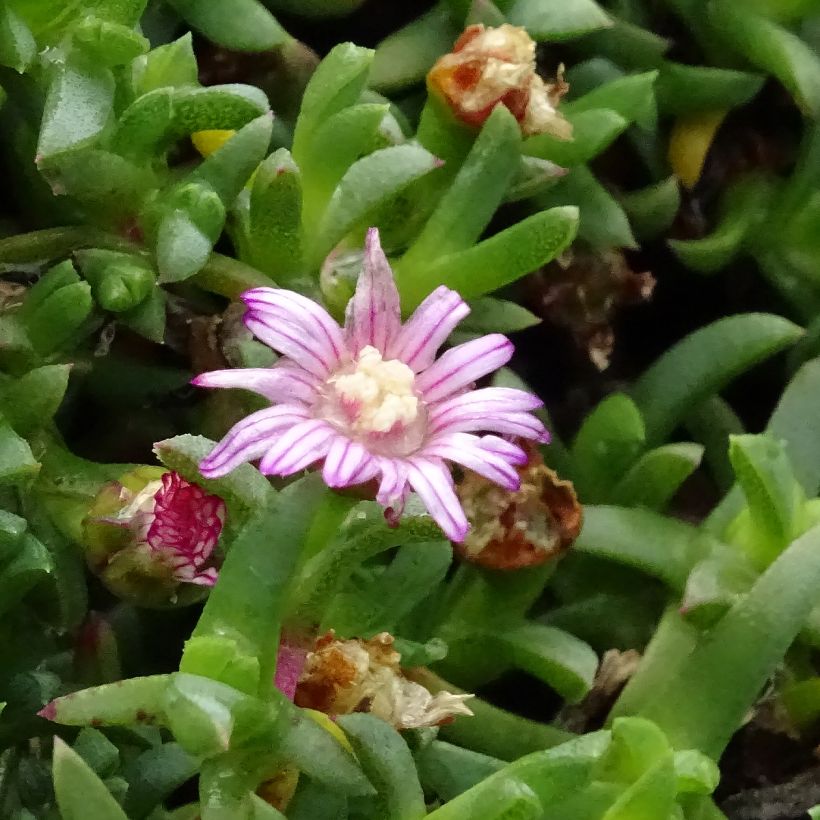

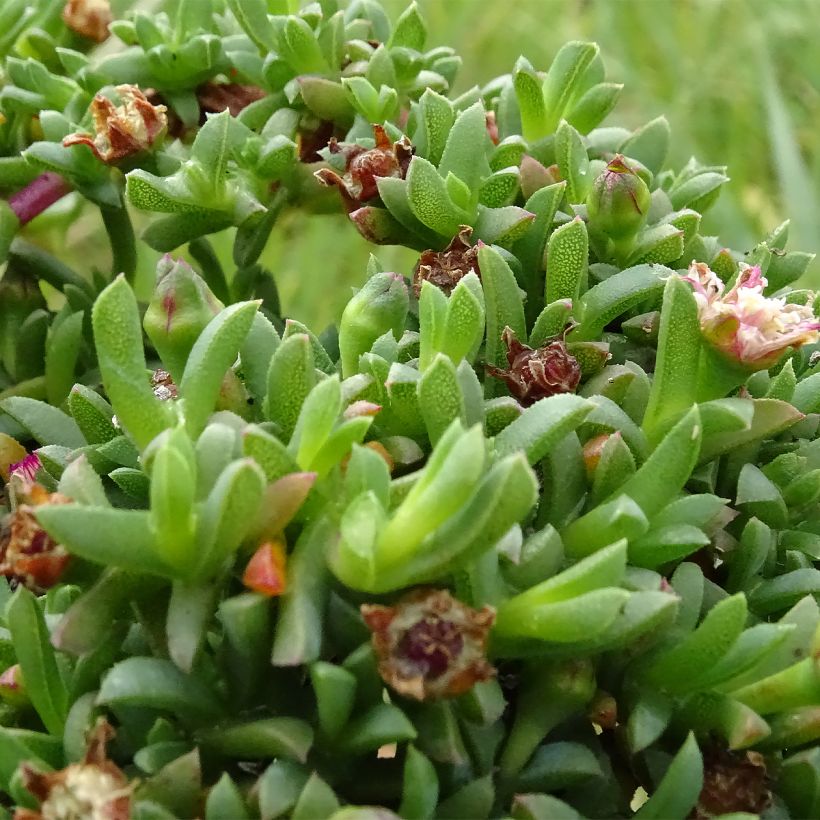

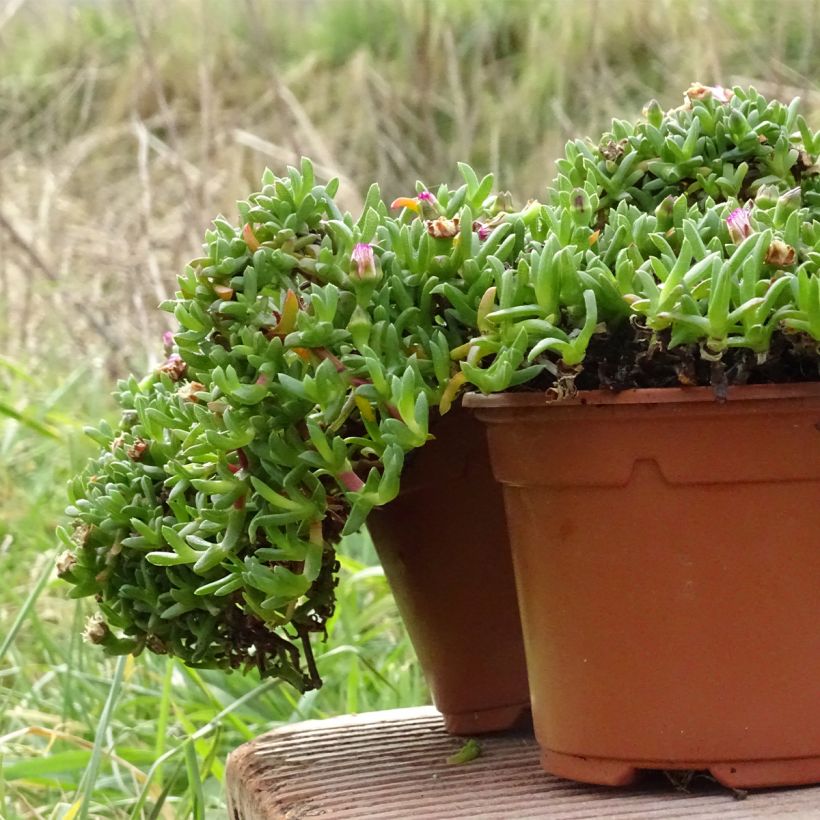

Flowering
Foliage
Plant habit
Botanical data
Ruschia
prostrata
Aizoaceae
Ruschia prostrata est une espèce spécifique qui n'a pas de nom vernaculaire commun en anglais britannique ou américain. Elle est généralement simplement appelée par son nom scientifique, "Ruschia prostrata".
South Africa
Other Perennials A to Z
View all →Planting and care
The Ruschia prostrata settles down in the spring in a well-drained, dry, sandy, or even rocky soil. It appreciates low walls, rockeries, and well-exposed slopes. Use a cactus soil mix. If your area is subject to frost, place this plant in a pot or container. This way, you can protect it during winter if necessary (frost-free, in a very bright but unheated room). The hardiness of this plant is evaluated at -5 °C at the end of the night, possibly a little more in very dry soil.
A very sunny and warm location is essential for it to feel comfortable and bloom abundantly. Some watering during prolonged dry spells will be welcome to extend the flowering period. You can remove faded flowers to encourage their renewal. Dividing the stump may be necessary after a few years, depending on its location.
Make sure it does not get covered with dead leaves from nearby trees if they are at risk of rotting. Similarly, this plant does not appreciate having constantly wet roots. Its shallow and extensive root system allows it to capture even the slightest surface moisture.
Planting period
Intended location
Care
-
, onOrder confirmed
Reply from on Promesse de fleurs
Similar products
Haven't found what you were looking for?
Hardiness is the lowest winter temperature a plant can endure without suffering serious damage or even dying. However, hardiness is affected by location (a sheltered area, such as a patio), protection (winter cover) and soil type (hardiness is improved by well-drained soil).

Photo Sharing Terms & Conditions
In order to encourage gardeners to interact and share their experiences, Promesse de fleurs offers various media enabling content to be uploaded onto its Site - in particular via the ‘Photo sharing’ module.
The User agrees to refrain from:
- Posting any content that is illegal, prejudicial, insulting, racist, inciteful to hatred, revisionist, contrary to public decency, that infringes on privacy or on the privacy rights of third parties, in particular the publicity rights of persons and goods, intellectual property rights, or the right to privacy.
- Submitting content on behalf of a third party;
- Impersonate the identity of a third party and/or publish any personal information about a third party;
In general, the User undertakes to refrain from any unethical behaviour.
All Content (in particular text, comments, files, images, photos, videos, creative works, etc.), which may be subject to property or intellectual property rights, image or other private rights, shall remain the property of the User, subject to the limited rights granted by the terms of the licence granted by Promesse de fleurs as stated below. Users are at liberty to publish or not to publish such Content on the Site, notably via the ‘Photo Sharing’ facility, and accept that this Content shall be made public and freely accessible, notably on the Internet.
Users further acknowledge, undertake to have ,and guarantee that they hold all necessary rights and permissions to publish such material on the Site, in particular with regard to the legislation in force pertaining to any privacy, property, intellectual property, image, or contractual rights, or rights of any other nature. By publishing such Content on the Site, Users acknowledge accepting full liability as publishers of the Content within the meaning of the law, and grant Promesse de fleurs, free of charge, an inclusive, worldwide licence for the said Content for the entire duration of its publication, including all reproduction, representation, up/downloading, displaying, performing, transmission, and storage rights.
Users also grant permission for their name to be linked to the Content and accept that this link may not always be made available.
By engaging in posting material, Users consent to their Content becoming automatically accessible on the Internet, in particular on other sites and/or blogs and/or web pages of the Promesse de fleurs site, including in particular social pages and the Promesse de fleurs catalogue.
Users may secure the removal of entrusted content free of charge by issuing a simple request via our contact form.
The flowering period indicated on our website applies to countries and regions located in USDA zone 8 (France, the United Kingdom, Ireland, the Netherlands, etc.)
It will vary according to where you live:
- In zones 9 to 10 (Italy, Spain, Greece, etc.), flowering will occur about 2 to 4 weeks earlier.
- In zones 6 to 7 (Germany, Poland, Slovenia, and lower mountainous regions), flowering will be delayed by 2 to 3 weeks.
- In zone 5 (Central Europe, Scandinavia), blooming will be delayed by 3 to 5 weeks.
In temperate climates, pruning of spring-flowering shrubs (forsythia, spireas, etc.) should be done just after flowering.
Pruning of summer-flowering shrubs (Indian Lilac, Perovskia, etc.) can be done in winter or spring.
In cold regions as well as with frost-sensitive plants, avoid pruning too early when severe frosts may still occur.
The planting period indicated on our website applies to countries and regions located in USDA zone 8 (France, United Kingdom, Ireland, Netherlands).
It will vary according to where you live:
- In Mediterranean zones (Marseille, Madrid, Milan, etc.), autumn and winter are the best planting periods.
- In continental zones (Strasbourg, Munich, Vienna, etc.), delay planting by 2 to 3 weeks in spring and bring it forward by 2 to 4 weeks in autumn.
- In mountainous regions (the Alps, Pyrenees, Carpathians, etc.), it is best to plant in late spring (May-June) or late summer (August-September).
The harvesting period indicated on our website applies to countries and regions in USDA zone 8 (France, England, Ireland, the Netherlands).
In colder areas (Scandinavia, Poland, Austria...) fruit and vegetable harvests are likely to be delayed by 3-4 weeks.
In warmer areas (Italy, Spain, Greece, etc.), harvesting will probably take place earlier, depending on weather conditions.
The sowing periods indicated on our website apply to countries and regions within USDA Zone 8 (France, UK, Ireland, Netherlands).
In colder areas (Scandinavia, Poland, Austria...), delay any outdoor sowing by 3-4 weeks, or sow under glass.
In warmer climes (Italy, Spain, Greece, etc.), bring outdoor sowing forward by a few weeks.






























